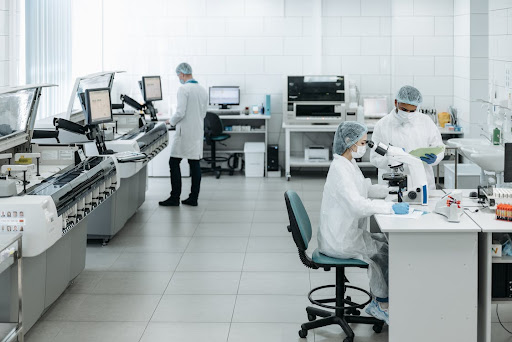Equipment
Laboratory equipment plays a crucial role in research, clinical, and biopharma work. Proper maintenance is essential to ensure the material safety, reliability, and longevity of the equipment. Keeping the equipment in good condition requires regular cleaning, calibration, inspection, proper usage, replacement of worn-out parts, and so on. Alongside this regular maintenance, seeking professional lab equipment services can help to ensure that your equipment is operating at its best.
In this article, we will discuss 8 tips for maintaining laboratory equipment effectively. By following these guidelines, you will be able to keep your laboratory equipment in good condition and ensure that it is functioning optimally.
#1 Clean and organize equipment regularly
To ensure the safety and reliability of laboratory equipment, it is important to keep it clean and organized. This helps to reduce the risk of contamination and accidental damage. Equipment should be regularly inspected, wiped down with appropriate cleaning solutions, and stored in its designated area. This will help to minimize wear and tear and keep the equipment in good working order. Additionally, keeping a log of when the equipment was last serviced or replaced can be a useful way of monitoring its condition.
#2 Calibrate equipment regularly
To ensure laboratory equipment operates optimally and safely, it should be calibrated regularly. Many pieces of lab equipment contain digital scales, thermometers, and meters that need to be checked on a regular basis to ensure accuracy. Additionally, physical and mechanical components should also be regularly checked for wear and tear. Calibration frequency will depend on the type and nature of the equipment, but it should be done at least once a year, and the records should be kept and updated. Make sure you have a proper calibration protocol in place and that all staff members are aware of the schedule and process.
#3 Inspect equipment for wear and tear
One of the most important tips for maintaining laboratory equipment is to inspect it regularly for wear and tear. Equipment that is used frequently is subjected to a lot of wear and tear, so it is essential that all areas are checked often. It’s best to do this on a regular basis, such as once a week or once a month, depending on usage. Check for any signs of damage, such as cracks, chips, or other signs of abrasion. Replace any faulty components immediately and keep a log of any repairs or replacements made. This will help you stay on top of any maintenance issues and help you prolong the life of your laboratory equipment.
#4 Replace parts as needed
As with any type of laboratory equipment, replacing parts as needed is an essential part of maintaining the safety and reliability of your laboratory equipment. When parts become worn, damaged, or no longer functioning properly, they can cause hazardous conditions or lead to inaccurate results. Therefore, it is important to regularly inspect your equipment for signs of wear or damage, and replace any parts as needed. Furthermore, keeping spare parts on hand can help to reduce downtime, ensuring that your lab is always operating at peak performance.
#5 Use the correct power supply
One of the most important tips for maintaining laboratory equipment is to use the correct power supply. Electricity is a powerful force, and it is essential to use the right power supply for your equipment. The wrong power supply can cause a sudden surge of power that could damage or even destroy the equipment. Make sure you have the correct power supply for your laboratory equipment and check it regularly to ensure it is working properly. A power surge or a power outage can be disastrous if not properly addressed.
#6 Store equipment properly
Proper storage can prevent damage and prolong the lifespan of the equipment. To ensure lab equipment remains in peak condition and performs optimally, it should be stored in a safe and secure environment. Storing equipment away from direct sunlight and heat sources can help protect it from wear and tear. Additionally, equipment should be stored in a dry area, away from any moisture or humidity, and in a dust-free environment. Once the equipment is stored, regularly inspect it for any damage or wear and tear.
#7 Train personnel on proper usage
To ensure safe and reliable laboratory equipment, it is essential to have well-trained personnel with a comprehensive knowledge of the equipment and its proper usage. Personnel should be trained in the proper operation, maintenance, and troubleshooting of the equipment, as well as the safety protocols for operating and handling the equipment. Additionally, personnel should be given information about the potential hazards associated with the equipment and how to handle them in the event of an accident or emergency. Proper training and supervision of personnel are essential for the safe and reliable operation of laboratory equipment.
#8 Seeking Lab Equipment Services
In addition to performing regular maintenance and upkeep, it is also important to seek professional lab equipment services to ensure that your equipment is operating at its best. Pacific Science LLC offers a range of services including maintenance, repair, and calibration to keep your equipment in top condition. They also provide ongoing support to ensure that your research, clinical, or biopharma material is being preserved at controlled temperatures. By seeking out these professional services, you can rest assured that you are getting the most innovative solutions to support your work and that your equipment is in good hands.
Conclusion
Maintaining laboratory equipment is crucial for ensuring material safety and reliability. By following these 8 tips, you can prevent errors, prolong the lifespan of your equipment, and ensure accurate results. Additionally, by seeking professional services like Pacific Science, LLC, you can rest assured that your equipment is in good hands and that you are getting the most innovative solutions to support your work.


